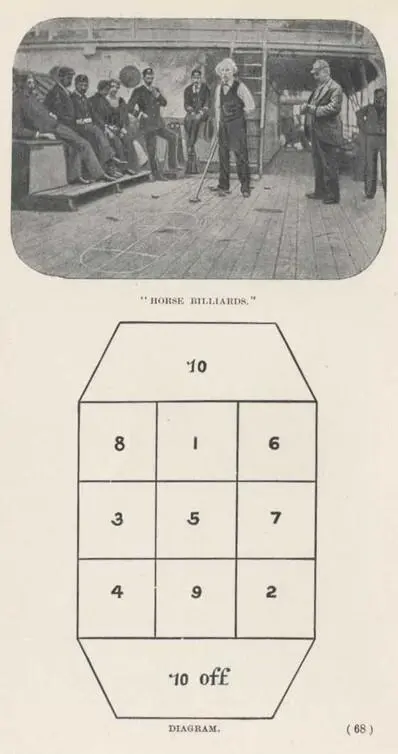Mark Twain - Following the Equator
Здесь есть возможность читать онлайн «Mark Twain - Following the Equator» весь текст электронной книги совершенно бесплатно (целиком полную версию без сокращений). В некоторых случаях можно слушать аудио, скачать через торрент в формате fb2 и присутствует краткое содержание. Год выпуска: 2004, Жанр: Классическая проза, Юмористическая проза, на английском языке. Описание произведения, (предисловие) а так же отзывы посетителей доступны на портале библиотеки ЛибКат.
- Название:Following the Equator
- Автор:
- Жанр:
- Год:2004
- ISBN:нет данных
- Рейтинг книги:3 / 5. Голосов: 1
-
Избранное:Добавить в избранное
- Отзывы:
-
Ваша оценка:
- 60
- 1
- 2
- 3
- 4
- 5
Following the Equator: краткое содержание, описание и аннотация
Предлагаем к чтению аннотацию, описание, краткое содержание или предисловие (зависит от того, что написал сам автор книги «Following the Equator»). Если вы не нашли необходимую информацию о книге — напишите в комментариях, мы постараемся отыскать её.
Following the Equator — читать онлайн бесплатно полную книгу (весь текст) целиком
Ниже представлен текст книги, разбитый по страницам. Система сохранения места последней прочитанной страницы, позволяет с удобством читать онлайн бесплатно книгу «Following the Equator», без необходимости каждый раз заново искать на чём Вы остановились. Поставьте закладку, и сможете в любой момент перейти на страницу, на которой закончили чтение.
Интервал:
Закладка:

We had a couple of grand tournaments, to determine who should be "Champion of the Pacific"; they included among the participants nearly all the passengers, of both sexes, and the officers of the ship, and they afforded many days of stupendous interest and excitement, and murderous exercise—for horse-billiards is a physically violent game.
The figures in the following record of some of the closing games in the first tournament will show, better than any description, how very chancy the game is. The losers here represented had all been winners in the previous games of the series, some of them by fine majorities:
Chase, 102 Mrs. D., 57 Mortimer, 105 The Surgeon, 92 Miss C., 105 Mrs. T., 9 Clemens, 101 Taylor, 92 Taylor, 109 Davies, 95 Miss C., 108 Mortimer, 55 Thomas, 102 Roper, 76 Clemens, 111 Miss C., 89 Coomber, 106 Chase, 98
And so on; until but three couples of winners were left. Then I beat my man, young Smith beat his man, and Thomas beat his. This reduced the combatants to three. Smith and I took the deck, and I led off. At the close of the first inning I was 10 worse than nothing and Smith had scored 7. The luck continued against me. When I was 57, Smith was 97—within 3 of out. The luck changed then. He picked up a 10-off or so, and couldn't recover. I beat him.
The next game would end tournament No. 1.
Mr. Thomas and I were the contestants. He won the lead and went to the bat—so to speak. And there he stood, with the crotch of his cue resting against his disk while the ship rose slowly up, sank slowly down, rose again, sank again. She never seemed to rise to suit him exactly. She started up once more; and when she was nearly ready for the turn, he let drive and landed his disk just within the left-hand end of the 10. (Applause). The umpire proclaimed "a good 10," and the game-keeper set it down. I played: my disk grazed the edge of Mr. Thomas's disk, and went out of the diagram. (No applause.)
Mr. Thomas played again—and landed his second disk alongside of the first, and almost touching its right-hand side. "Good 10." (Great applause.)
I played, and missed both of them. (No applause.)
Mr. Thomas delivered his third shot and landed his disk just at the right of the other two. " Good 10." (Immense applause.)
There they lay, side by side, the three in a row. It did not seem possible that anybody could miss them. Still I did it. (Immense silence.)
Mr. Thomas played his last disk. It seems incredible, but he actually landed that disk alongside of the others, and just to the right of them-a straight solid row of 4 disks. (Tumultuous and long-continued applause.)
Then I played my last disk. Again it did not seem possible that anybody could miss that row—a row which would have been 14 inches long if the disks had been clamped together; whereas, with the spaces separating them they made a longer row than that. But I did it. It may be that I was getting nervous.
I think it unlikely that that innings has ever had its parallel in the history of horse-billiards. To place the four disks side by side in the 10 was an extraordinary feat; indeed, it was a kind of miracle. To miss them was another miracle. It will take a century to produce another man who can place the four disks in the 10; and longer than that to find a man who can't knock them out. I was ashamed of my performance at the time, but now that I reflect upon it I see that it was rather fine and difficult.
Mr. Thomas kept his luck, and won the game, and later the championship.
In a minor tournament I won the prize, which was a Waterbury watch. I put it in my trunk. In Pretoria, South Africa, nine months afterward, my proper watch broke down and I took the Waterbury out, wound it, set it by the great clock on the Parliament House (8.05), then went back to my room and went to bed, tired from a long railway journey. The parliamentary clock had a peculiarity which I was not aware of at the time—a peculiarity which exists in no other clock, and would not exist in that one if it had been made by a sane person; on the half-hour it strikes the succeeding hour, then strikes the hour again, at the proper time. I lay reading and smoking awhile; then, when I could hold my eyes open no longer and was about to put out the light, the great clock began to boom, and I counted ten. I reached for the Waterbury to see how it was getting along. It was marking 9.30. It seemed rather poor speed for a three-dollar watch, but I supposed that the climate was affecting it. I shoved it half an hour ahead; and took to my book and waited to see what would happen. At 10 the great clock struck ten again. I looked—the Waterbury was marking half-past 10. This was too much speed for the money, and it troubled me. I pushed the hands back a half hour, and waited once more; I had to, for I was vexed and restless now, and my sleepiness was gone. By and by the great clock struck 11. The Waterbury was marking 10.30. I pushed it ahead half an hour, with some show of temper. By and by the great clock struck 11 again. The Waterbury showed up 11.30, now, and I beat her brains out against the bedstead. I was sorry next day, when I found out.

To return to the ship.
The average human being is a perverse creature; and when he isn't that, he is a practical joker. The result to the other person concerned is about the same: that is, he is made to suffer. The washing down of the decks begins at a very early hour in all ships; in but few ships are any measures taken to protect the passengers, either by waking or warning them, or by sending a steward to close their ports. And so the deckwashers have their opportunity, and they use it. They send a bucket of water slashing along the side of the ship and into the ports, drenching the passenger's clothes, and often the passenger himself. This good old custom prevailed in this ship, and under unusually favorable circumstances, for in the blazing tropical regions a removable zinc thing like a sugarshovel projects from the port to catch the wind and bring it in; this thing catches the wash-water and brings it in, too—and in flooding abundance. Mrs. I., an invalid, had to sleep on the locker—sofa under her port, and every time she over-slept and thus failed to take care of herself, the deck-washers drowned her out.
And the painters, what a good time they had! This ship would be going into dock for a month in Sydney for repairs; but no matter, painting was going on all the time somewhere or other. The ladies' dresses were constantly getting ruined, nevertheless protests and supplications went for nothing. Sometimes a lady, taking an afternoon nap on deck near a ventilator or some other thing that didn't need painting, would wake up by and by and find that the humorous painter had been noiselessly daubing that thing and had splattered her white gown all over with little greasy yellow spots.
The blame for this untimely painting did not lie with the ship's officers, but with custom. As far back as Noah's time it became law that ships must be constantly painted and fussed at when at sea; custom grew out of the law, and at sea custom knows no death; this custom will continue until the sea goes dry.
Sept. 8.—Sunday. We are moving so nearly south that we cross only about two meridians of longitude a day. This morning we were in longitude 178 west from Greenwich, and 57 degrees west from San Francisco. To-morrow we shall be close to the center of the globe—the 180th degree of west longitude and 180th degree of east longitude.
And then we must drop out a day—lose a day out of our lives, a day never to be found again. We shall all die one day earlier than from the beginning of time we were foreordained to die. We shall be a day behindhand all through eternity. We shall always be saying to the other angels, "Fine day today," and they will be always retorting, "But it isn't to-day, it's tomorrow." We shall be in a state of confusion all the time and shall never know what true happiness is.
Читать дальшеИнтервал:
Закладка:
Похожие книги на «Following the Equator»
Представляем Вашему вниманию похожие книги на «Following the Equator» списком для выбора. Мы отобрали схожую по названию и смыслу литературу в надежде предоставить читателям больше вариантов отыскать новые, интересные, ещё непрочитанные произведения.
Обсуждение, отзывы о книге «Following the Equator» и просто собственные мнения читателей. Оставьте ваши комментарии, напишите, что Вы думаете о произведении, его смысле или главных героях. Укажите что конкретно понравилось, а что нет, и почему Вы так считаете.











